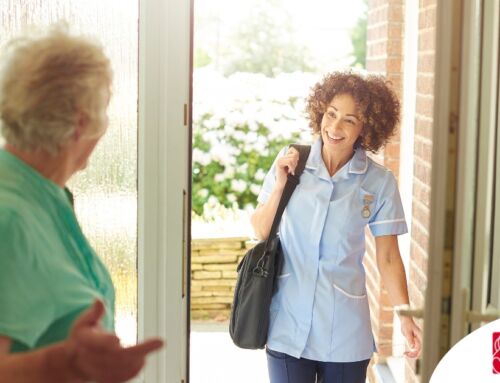This month’s focus is on Heart Health and blood pressure (BP) is one of the bigger contributors for our cardiac health. In 2017, the standard and definition of what is high blood pressure changed, across all age groups. This means, even if you haven’t had high blood pressure before, you may now.
How are the new blood pressure numbers different?
After much research and understanding of how blood pressure affects our heart health, the numbers for high blood pressure have been lowered:
Here are the old (pre-2017) numbers:
And the new numbers (with the changes circled):
In comparison, the thresholds have been changed:
- The Elevated or Pre-Hypertension category was 120-139 / 80-89 and is now 129-129 / under 80
- High Blood Pressure Stage 1 category was 140-159 / 90-99 and is now 130-139 / 80-89
- High Blood Pressure Stage 2 category was 160-> / 100-> and is now 140-> / 90->
- The Hypertensive Crisis Stage has not changed substantially.
This means that if your BP has hovered around 130/85, you’ve now entered the new standard for high blood pressure. But what can be done to help manage your new standing?
Tips for seniors managing high blood pressure
Work towards maintaining a healthy weight. This is one of the most important items on the list, but seems the toughest to do for many people. Getting to and maintaining a healthy weight (approximately 25-27 on the BMI chart. For more information click here) is critical. Once you begin to understand approximately what number your weight should be, then the next goal is working towards it and maintaining it.
Really cut down on salt. Like, really. Many of us say that we’re cutting down, but we don’t. Stop using additional salt on food, ever. Pre-packaged foods also have a lot of salt already in them, so please don’t add any more. If you can eat less pre-packaged foods, you’ll also be doing yourself a favor. Click here for some great salt alternatives.
Exercise. It can be challenging to add exercise to our lives and when we do, it’s sporadic. The key is to begin to do something (or things) daily that add some cardio exercise into your life. The American Family Physician website indicates, “For substantial health benefits, the guidelines recommend that most older adults participate in at least 150 minutes of moderate-intensity aerobic activity, 75 minutes of vigorous-intensity aerobic activity, or an equivalent combination of each per week.”
Here are some great suggestions for senior friendly workouts.
No smoking. This one should be a moot point in this day and age, but there are a few people left still smoking. If you’re one of them, please quit. If you’re looking for resources to help you quit, look here.
Work with your doctor and monitor your own blood pressure. Understanding the BP numbers are one thing, but working with your doctor to self-manage your stats is another. Know what your target BP should be and get yourself a user-friendly home monitor kit, like the ones shown here. Monitoring and charting will help you have better control.
Manage stress. We hear it often enough, but stress management is a key factor in maintaining heart health, due in large part to how it affects our blood pressure. Look into one or more of these options:
- Regular exercise
- Mindfulness practice (like yoga or meditating)
- Massage therapy
- Spending time with friends, loved ones or trusted advisors
Wrap Up
Even though the numbers have changed, and there are some genetic factors, you still have so much control over your BP numbers. Doing the things that you have control over will make more of a difference than you think. Take control and proactively manage your blood pressure, for your own health and for those who love you.
~ ~ ~
Do you have questions about how you can better support your loved one while they age in place in South Florida or regarding homecare in general? Please contact CareGivers of America here: Contact or call us toll free: 800-342-4197
To join our amazing mailing list where you’ll receive special content, click here.
*No information in this article is to be taken as advice, medical or otherwise. This post is not sponsored, but may contain external links to websites, articles or product examples. External links are used for example or refence purposes only and these links do not indicate specific product or website endorsement by CareGivers of America.






